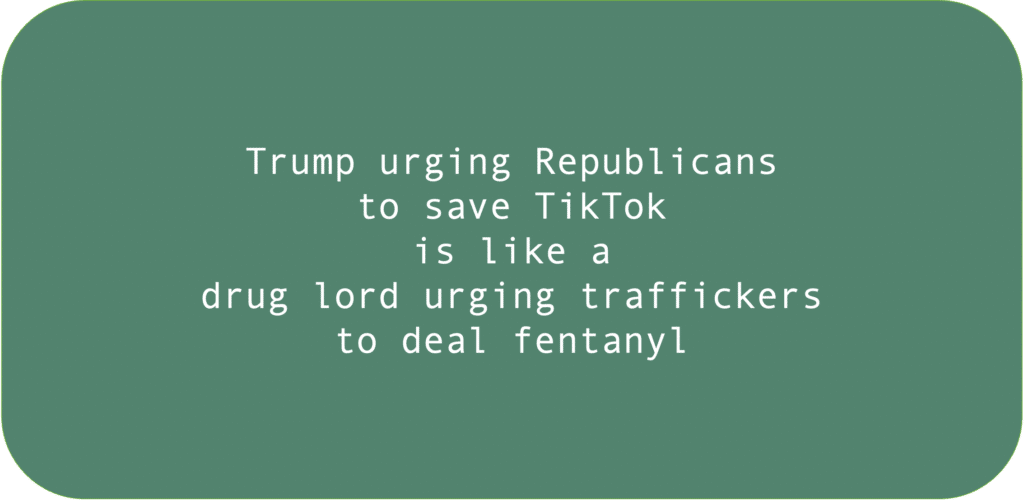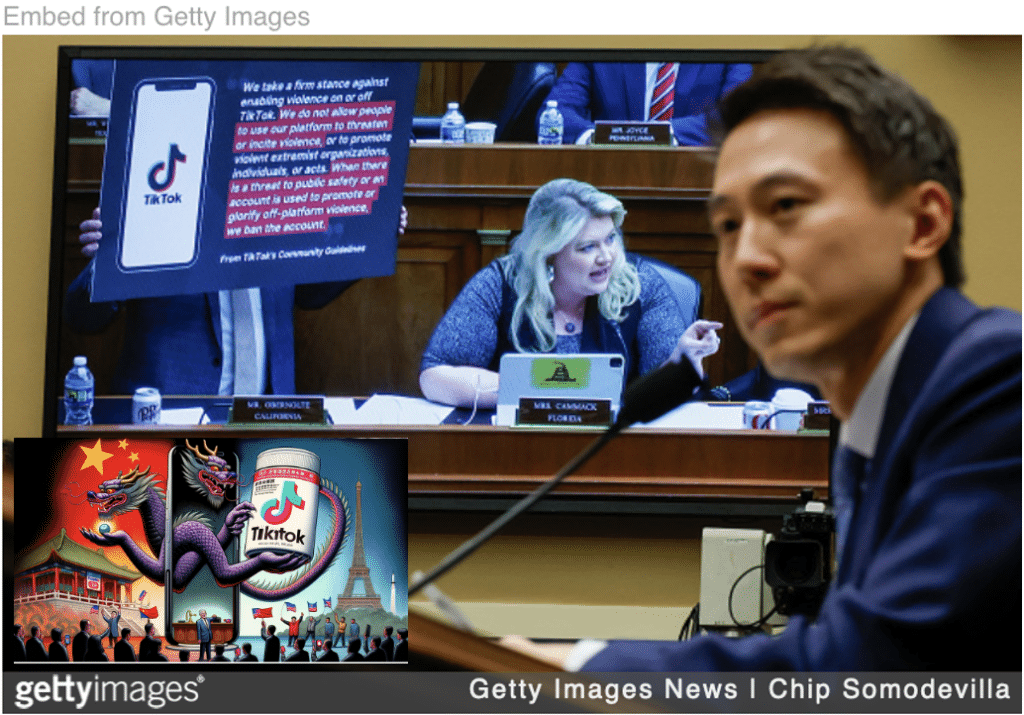 TikTok, the digital fentanyl
TikTok, the digital fentanyl
In this age of social media, digital warfare is becoming as consequential as land warfare. This reality is underscored by a bill now barreling through Congress. Should it pass, it would compel the Chinese owners of TikTok to sell it to a buyer with no links to China or face an outright ban.
Members of Congress can’t agree on anything nowadays. They can’t even pass a bill to fix the migrant crisis at the US-Mexico border, to arm Ukraine against Russia, Taiwan against China, or Israel against Hamas. That’s why it speaks volumes that this TikTok bill is heading for passage at warp speed.
Indeed, it’s particularly notable that Republicans are leading the charge to ban it. This is a rare case of them defying their cult leader, Donald Trump. His mercenary self-interest made him flip-flop from signing an executive order to ban TikTok to calling on Republicans to save it.
Of course, most social media apps are like opioids. My commentaries lambasting their zombifying, anti-social impacts bear witness to this – as the following titles attest:
- “Zuckerberg Designed Facebook ‘Like’ an Opioid” on November 17, 2017
- “Testing Social Networks Without ‘Likes’… Because a ‘Mind Is a Terrible Thing to Waste‘” on September 26, 2019
- “Opioids like Fentanyl Have Nothing on Social Media like TikTok” on September 3, 2023
The difference, however, is that China is becoming America’s most formidable foe. And China is using TikTok to brainwash Americans. This isn’t just about cat videos or lip-sync battles; it’s about a propaganda machine operating as a social media app.
TikTok pop-up campaign against ban
Case in point: TikTok is spreading propaganda intended to kill this bill. Playing the victim, TikTok mobilized its users, sending them pop-up marching orders to inundate Congress with pleas to save the app.
Ironically, this campaign unwittingly showcased TikTok’s capability to manipulate millions of Americans into acting against national interests. This manipulation is precisely why Congress is rushing to pass the bill.

This is digital imperialism. The pop-up campaign isn’t a defense but an admission of the app’s ability to manipulate en masse.
Even so, thanks to Trump’s mercenary and dystopian influence, millions of Americans are lobbying Congress to leave TikTok alone. Of course, Trump infamously said he trusts the Russian government more than the US government.
So, it’s hardly surprising that so many Americans trust the Chinese government more. American businesses blithely abandon their corporate values to enter the Chinese market. American citizens are now blithely abandoning their democratic values to make money using this Chinese app.
Alas, American greed knows no bounds. But this is how democracy dies – with eyes wide shut.
Digital reciprocity or mutually assured ban
The mere potential of TikTok to spread propaganda is alarming enough. However, the digital imbalance it represents is consistent with China’s trade imbalance with the US. The latter is not as insidious, but both are equally untenable.
America allows Chinese media free reign, but China is notorious for censoring American media. I have also written many commentaries on this aspect of the US-China relationship.
- “Trump and NBA Find Doing Business in China Like Walking on Eggshells” on October 15, 2019
- “China: Snowflake Censorship at Home Rivals Bullying Foreign Policy” on October 23, 2021…
- “China Forces Apple to Cancel Jon Stewart” on October 21, 2023
Protecting digital borders
The US must recalibrate this relationship, demanding digital sovereignty and trade reciprocity. If American apps face a firewall in China, then Chinese apps should face a firewall in the US. This is not about censorship; it’s just that trade should be fair play.
TikTok is more than just an entertainment app; this controversy is more than a tech issue. Because it poses a clear and present danger to national security, digital sovereignty, and the integrity of public discourse. It’s like an invading army in a digital war, where influence and control are the ultimate prizes.
The battle against TikTok isn’t just about safeguarding data; it’s about protecting public consciousness from a new, insidious invasion. The message is stark: if you don’t want China’s fentanyl on your streets, why allow its digital equivalent on your screens?
The US is losing the battle against Chinese fentanyl. That’s why it should seize this opportunity to win this battle against Chinese TikTok. And it will only take congressional votes and the stroke of a presidential pen to do so.